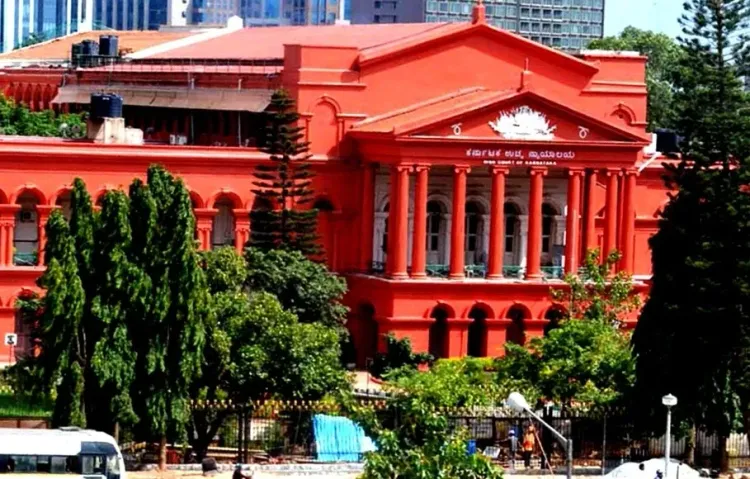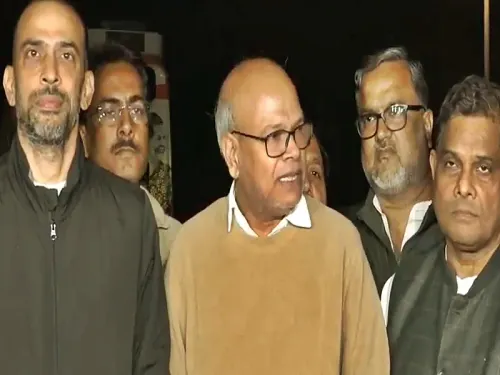Did Karnataka HC Order Centre to Respond to Ranya Rao’s COFEPOSA Challenge?

Synopsis
Key Takeaways
- Karnataka High Court mandates response from the Union government.
- COFEPOSA Act limits bail opportunities for accused.
- Ranya Rao challenges the legality of her detention.
- Legal implications of the case could set precedents.
- Public interest in high-profile legal battles continues to grow.
Bengaluru, May 13 (NationPress) - The Karnataka High Court has instructed the Union government to submit its objections within a fortnight regarding the petition brought forth by imprisoned actress Ranya Rao, who is contesting the application of the COFEPOSA Act against her in the ongoing gold smuggling investigation.
The Conservation of Foreign Exchange and Prevention of Smuggling Activities Act, enacted in 1974, has been applied to the detained Kannada actress Ranya Rao. The Central Economic Intelligence Bureau (CEIB), operating under the Ministry of Finance, has taken this step against her and other individuals implicated in the gold smuggling case, following recommendations from the Directorate of Revenue Intelligence (DRI), which is actively investigating the matter.
As a result of the COFEPOSA Act being invoked, Ranya Rao faces a one-year period during which she is ineligible for bail.
The bench has ordered the Central government to present its objections within two weeks and has postponed the hearing to June 3.
The vacation bench, comprising Justice H.P. Sandesh and Justice Ramachandra Huddar, issued these directives while reviewing Ranya Rao's petition, which claims that the application of the COFEPOSA Act against her is unlawful and void ab initio (invalid from the outset).
Deputy Solicitor General H. Shanthi Bhushan, representing the Indian government, indicated that he would require four weeks to file objections. Senior counsel Chandra Shekara. K. is advocating for Ranya Rao.
Currently, Ranya Rao is incarcerated in Bengaluru Central Prison after her bail petitions were denied. Her legal submission argues that her constitutional rights have been breached and that the rationale behind her detention is flawed and indicative of a lack of careful consideration.
Ranya Rao, who is the stepdaughter of senior police officer Ramchandra Rao, was taken into custody on March 3 for allegedly smuggling 14.2 kilograms of gold, valued at over Rs 12.56 crore.
Both Ranya Rao and the other two accused in this case are currently held at Bengaluru Central Prison.









